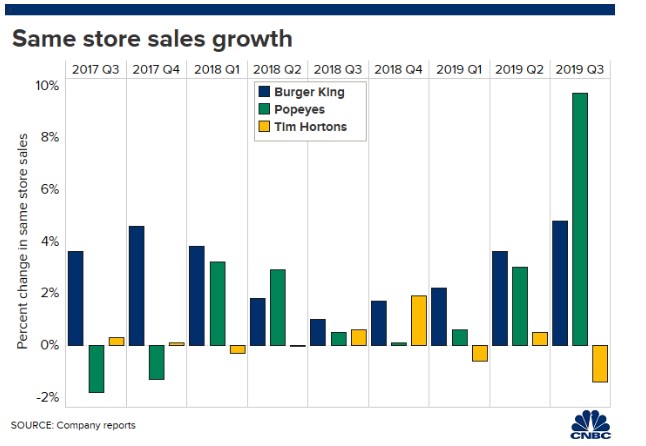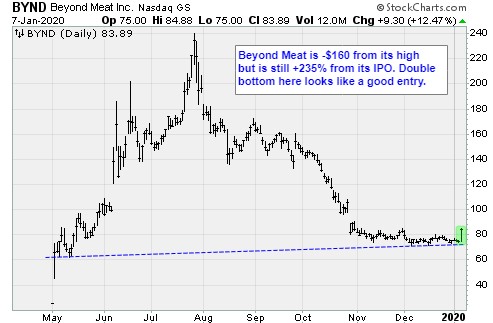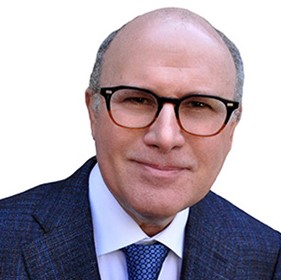Dr. Martin Weiss and the team at Weiss Ratings want you to get the most out of your investments in 2020. That’s why we burned the midnight oil, conducting over 500 case studies and spending over $3.2 million on data costs, to achieve our goal of creating a safe, income-generating machine anyone can use.
And we’ve done just that. This coming Tuesday, Jan. 14, at 2 p.m. Eastern, we’re ready to share this historic breakthrough with you in our first-ever Instant Income Webinar. As a loyal subscriber, you can attend for FREE. Click here now to secure your spot.
In the meantime, I have another opportunity to get your year off to a profitable start.
Every January, technology early adopter consumers gather in Las Vegas to get a glimpse of the future. Judging from the buzz, the future is meatless.
Impossible Foods revealed Tuesday its Impossible Pork, a plant-based substitute Cnet called scarily similar to the real thing. Forget the hyperbole, that is kind of a big deal.
It’s not the first success story from Impossible Foods. The tiny Redwood City, Calif. startup became a star at the Consumer Electronics Show in 2019, earning a clean sweep of the top awards at the Las Vegas show. The Impossible Burger looked, smelled and even tasted like the real thing thanks to its proprietary concoction of soy, natural oils, amino acids and heme, an iron molecule common to all living organisms.
Heme is key to the next generation of plant-based proteins. Impossible makes it by harvesting soy leghemoglobin from engineered yeast. When added to the company’s beef and pork alternatives, heme creates meaty texture and flavor, while maintaining all the healthy benefits of plant-based food.
The company claims that Impossible Pork has about 38% fewer calories than a four-ounce serving of traditional lean pork, with 60% less fat. And because its main ingredients are soy, sunflower and coconut oils, it’s suitable for kosher and halal diets.
But the real prize is Asia.
Impossible CEO Ethan Brown told CNN Business that the company is targeting growth in Asia where pork is the leading meat product. Ultimately, he wants to bring sustainability to the global food system by removing animals from the human chain. His timing is good.
Chinese pork prices doubled in 2019 following an African swine flu outbreak, and the culling of half of the domestic herd. Brown believes Impossible Pork is the perfect replacement in savory dumpling, noodle and dim sum dishes.
The investment story is eerily similar Tesla (TSLA).
When Elon Musk started the electric vehicle company in 2003 his ambition was to move the world away from fossil fuel-based transportation. Sustainable fuels are better for the environment. Unfortunately, the first mass market EVs had a reputation for being unsafe and about as much fun to drive as a sewing machine.
The first Tesla was a Lotus-inspired electric rocket. The Model S, introduced in 2012, was so safe it broke the crash test scale used by the National Highway Traffic Safety Association, according to Road and Track. On a scale of 0 to 5, the latter being the safest, the Tesla earned a score of 5.4. Meanwhile, the 4,700-pound behemoth could sprint to 60 mph from a standstill in only 4.4 seconds.
Related post: New Green Growth Electrifies Auto Industry
Teslas are EVs without compromises. Sure, they are environmentally friendly. But they are also insanely safe and fun to drive. Plant-based meats could be to food what Tesla is to transportation. After all, production is significantly more environmentally friendly compared to raising livestock, and the taste speaks for itself.
The proof is in the burger. This year, Burger King partnered with Impossible Foods to create the Impossible Whopper. According to the fast-food chain and its customers, the plant-based version is indistinguishable from the flagship beef burger.
Restaurant Brands (QSR), the parent company of Burger King, reported last October, that the company reported the strongest same store sales performance since 2015. Managers attributed the gains solely to Impossible Whopper.
Journalists from millennial friendly publications and old school ones agree. The Impossible burger is a hit because it comes without the usual compromises of veggie burgers. It’s not dry and flavorless. It’s juicy and meaty. It tastes and smells like a real burger while not damaging the environment.
For investors, buying into the environmental benefit of EVs or plant-based diets is unimportant.
The actionable information is consumers are moving in this direction because there is no disadvantage. They get feel good about their choices while eating junk food. And now they are now voting with their wallets.
The latest Tesla, the $50,000 Model 3, is the best-selling luxury vehicle in U.S. by a wide margin. The car is so popular it is outselling the Chevrolet Malibu, a vehicle $30,000 cheaper.
Company success is pushing every major automaker in the world toward electrification. Ford (F) confirmed in January 2019 that the company will offer an all-electric version of its best-selling F-150 truck.
Related post: Branding: Tesla’s Ultimate Power Move
The food industry is seeing a similar trend. The market-proven success of plant-based foods have Nestle, Tyson (TSN), Hormel (HRL), Smithfield (SFD) and Purdue — all major food processing companies — to rushing plant-based products to supermarket shelves. The potential prize is large. The New York Times reported in October that the market for such fare could be worth $85 billion by 2030.
Currently, the best way for investors to play this trend is Beyond Meat (BYND). At $83.99, shares trade at an eye-popping 22.4x sales. While high, that figure is way down from what it was when the stock traded at $240 in August 2018.
Beyond Meat is focused on using its production scale to secure a foothold at the largest fast-food chains. Tuesday, the company announced it would no longer face competition from Impossible to supply McDonalds (MCD).
Buy Beyond into weakness. The stock could easily zoom back toward $150 as more chains add its product to menus.
Best wishes,
Jon D. Markman





